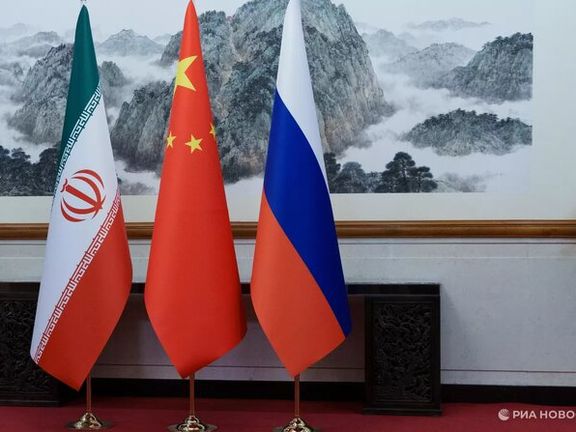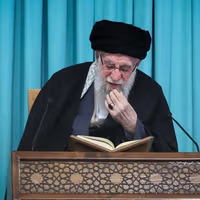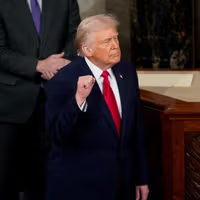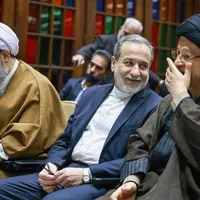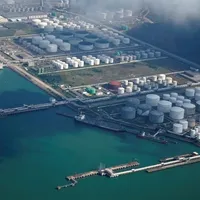The renewed restrictions are biting deep into society, yet they are ultimately the result of Tehran’s own policies, economist Mahdi Ghodsi told Eye for Iran.
“In the past 10 years, the real income of Iranians has been halved. The middle class has become poor and the poor cannot live under these conditions,” he said.
“I consider sanctions as the effect of bad management, bad policy and bad governance. If you think about the benefits of your own people, you don’t impose policies that attract sanctions,” he added.
Iranians themselves are pointing the finger at their leaders, analyst Holly Dagres said.
“You’re hearing chants from retirees, you’re hearing labor unions saying enough — stop blaming sanctions and inflation. This is all on you. The West is not the problem here. You’re the problem,” said Dagres, a fellow at the The Washington Institute think tank.
Currency tank
The rial has collapsed to 1,170,000 to the US dollar — or 117,000 tomans on the free market — the weakest in Iran's history.
Iran’s Central Bank Governor blamed the plunge on an “enemy’s psychological war,” but for families, it has meant soaring costs for food, rent, and medicine. The broad scope of the new sanctions, covering oil, banking and dual-use goods, is already eroding purchasing power across the country.
The volatility is also taking a psychological toll.
“People are constantly checking the exchange rate, they’re constantly checking the gold rate,” Dagres said. “It’s like a stock market for them, because they know that tomorrow their bread or their rent or their medicine could cost more.”
The so-called snapback of United Nations sanctions was welcomed on October 1 by the foreign ministers of the G7 countries, joined by the EU’s High Representative.
Tehran was accused of failing to meet its nuclear obligations, and urged to return to direct talks with Washington. The measures restore sweeping restrictions first imposed between 2006 and 2010, which had been lifted under the 2015 nuclear deal.
The United States, European Union, and allies including Canada and Japan have also moved to reimpose their own measures.
Research highlights how devastating such measures have been. Sanctions between 2012 and 2019 shrank Iran’s middle class by up to 28 percentage points compared with a no-sanctions scenario, according to a study by Mohammad Reza Farzanegan of Philipps-Universität Marburg and Nader Habibi of Brandeis University, published in the European Journal of Political Economy.
Sanctions “laid waste” to the very group that once drove reform and moderation in Iran, the authors wrote in an op-ed published by Al Jazeera.
War fears
The sanctions appear to deepen an impasse that may culminate in more war.
"The specter of war is still on Iran. Iranian airspace is still under control of Israel and the United States, Ghodsi said. "Either the Iranian government will try to resolve all these issues or the tensions will escalate soon."
Dagres said average Iranians are fearful of another war and its attendant death and displacement, but Tehran's hard line hard line may augur another conflict.
"To me, it seems like things are not changing in the view of the Islamic Republic. And the way that things are going, it does look like a path to confrontation."
You can watch the full episode of Eye for Iran on YouTube or listen on any podcast platform of your choosing like Castbox, Spotify, Apple or Amazon Music.
